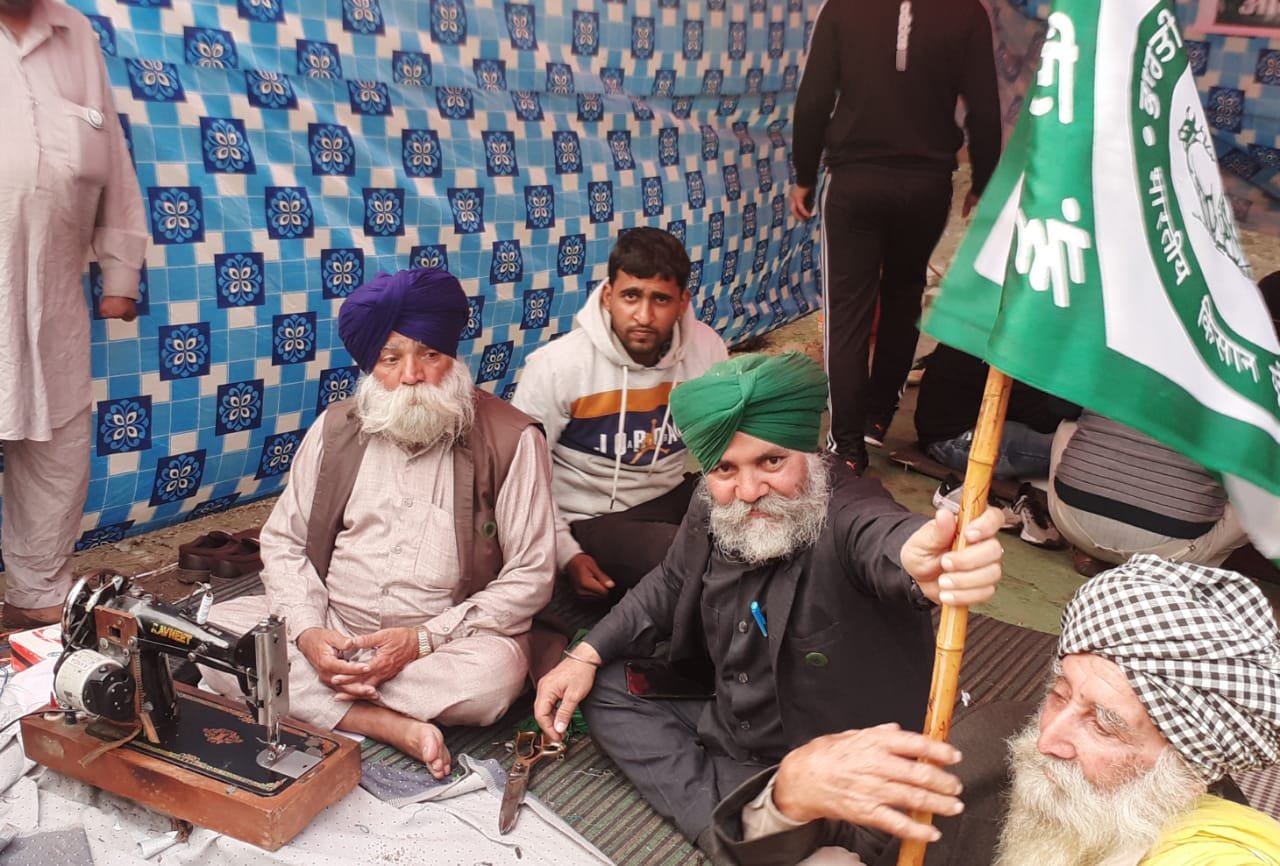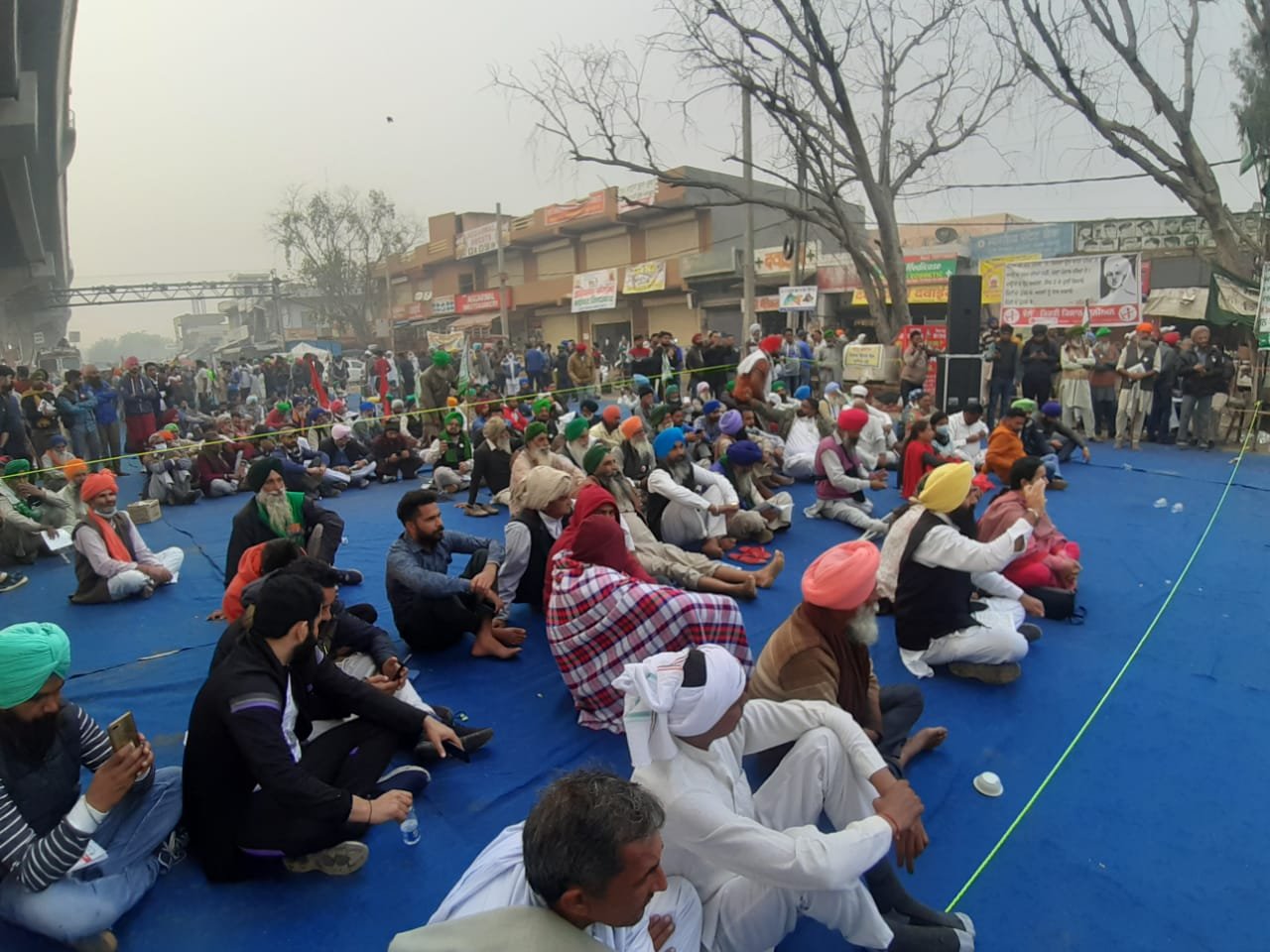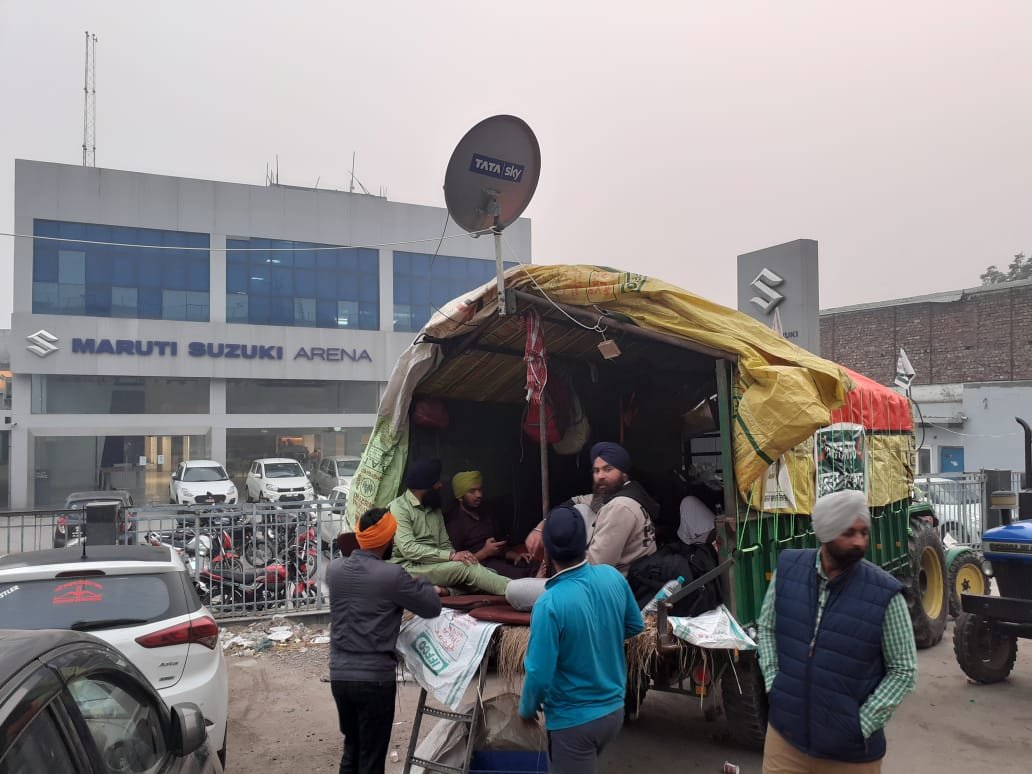
“Not just flags, whatever you want to make, be it knickers, kurtas, shirts, we are here to serve and it is all free.”
Zafar Aafaq | Clarion India
TIKRI BORDER, New Delhi— As the endless convoy of tractors and cars with speakers blaring out revolutionary songs passed by the shop of 70-year-old Niranjan Singh, a wave of enthusiasm struck him and he turned to his younger brother Suba Singh and said, “We should also join the rally.”
Niranjan and Suba are drapers, running two shops, adjacent to each other, in Barnala, a town of Punjab.
Coincidentally, Suba mirrored his brother’s serendipitous wish. He picked up a sewing machine from his shop counter. The duo downed the shutters of their shops and jumped on their motorcycle to follow the long-winding New Delhi-bound convoy.
“We drove the bike alternately, shifting after every 50 miles,” Suba said. “It was fun.”
Some six hours later, they joined a rally of tractors and cars at Tikri, on the border between New Delhi and Haryana where farmers have stayed put. The police installed a double row of mettle barricades to thwart the protesters’ march from proceeding into the national capital.
Since late November, tens of thousands of ryots, mainly from Punjab and Haryana, have been camping at different spots along Delhi’s border in protest against the new farm laws introduced by the government of Prime Minister Narender Modi in late September. The farmers say the new laws have been made to benefit the corporates and feel they will be subjected to exploitation in the years to come.
Their protests have attracted widespread support from opposition parties, civil society, workers unions, professionals and movie stars. Volunteers are making food, and doctors are supplying medicines while some are chipping with cash.

Similarly, Niranjan and Suba, who are not farmers but driven by a sense of community and voluntary zeal, have come up with their own way of showing their support. They have set up their sewing machine at the mouth of a tent pitched by the highway that is covered with tarpaulin-draped tractor trolleys serving as make-do bedrooms.
“Not just flags, whatever you want to make, be it knickers, kurtas, shirts, we are here to serve and it is all free.” Niranjan said. “Hamaray pass zameen nahin hai, par zameer to hai (We may not own any land but we have conscience).”
Protesters frequent the tent with flags or a cloth whose stitches have come undone. If they come across anyone carrying a torn flag, they stop them and fix their flag. Moreover, the shop also serves as a space for a protester or two to relax and take a nap or gossip.
Suba said they were motivated by the spirit of humanitarianism in “Sikh Quam” which is “we share half our bread with the needy but we will not let anyone snatch our bread from us”.
The protesting farmers who have so far shown a great deal of determination have been termed as “terrorists”, “misguided” and “Khalistanis” by some sections of the mainstream media and the government.
But the labeling has sparked a sharp response from the sons of the soil who have denounced the media as “godi media” or pro-government. “See, it is not just one person who is protesting and you can call him or her misguided. Here you see tens of thousands of farmers of all faiths, castes and colours, and everyone is unhappy,” Suba explained. “Are all these people crazy, then?”

Back in Barnala, the shops are shut ever since the two brothers left but their whole focus is on protests. “Right now, our farmer brothers need us more than our families,” Niranjan said. “We have done a lot for our families already.”
The cold winter, old age and health complications— both have undergone coronary bypass surgery—is making difficult for them to continue but they say they will support and pray for farmers success from home.
“We urge Modi to take back the laws and let everyone go home and live in peace,” Niranjan said.

